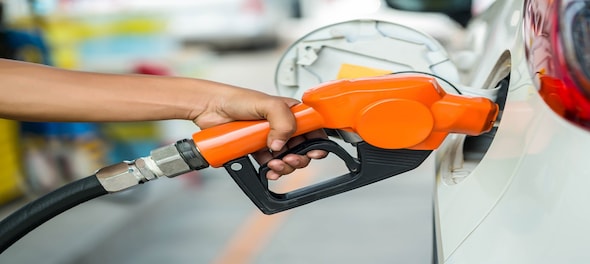
In the midst of severe economic crisis, Pakistan grapples with the soaring fuel prices, as petrol and diesel have breached a record Rs 300 mark for the first time in history. After the finance ministry’s announcement on August 31 of another fuel hike, the cost of petrol stands at Rs 305.36 per litre, while the high-speed diesel (HSD) is now priced at Rs 311.84 per litre.
The caretaker government of Prime Minister Anwaar-ul-Haq Kakar raised petrol rates by Rs 14.91 and diesel by Rs 18.44 per litre on Thursday evening. The finance ministry said that due to the increasing trend of petroleum prices in the international market and exchange rate variations, the government has decided to revise the existing consumer prices of petroleum products.
However, no changes have been announced in the prices of light diesel oil and kerosene, reported Dawn.
This surge in fuel costs adds pressure to Pakistan's economy, already facing one of its worst crises in decades.
Over the past year, the Pakistani rupee has lost nearly half of its value against the US dollar. The currency devaluation has forced the central bank to raise interest rates, in turn impacting citizens and businesses.
The hike in prices of daily essentials has sparked concern. In several major cities, including the capital Islamabad, people have taken to the streets to protest a surge in electricity bills. The Pakistani government has refused to slash electricity prices without approval from the International Monetary Fund (IMF). Interim Prime Minister Anwaar-ul-Haq Kakar has promised relief, but his Cabinet said on Tuesday that reducing the bills would have adverse effects on a massive IMF loan, Al-Jazeera reported.
Anwaar-ul-Haq Kakar’s government has been tasked with leading the country towards economic stabilisation until fresh elections are held, which could be as late as November. But, the price rise may make it difficult for the state to fulfil its economic objectives.
Pakistan is under immense pressure from the IMF to repay its debts. The South Asian nation has been put under tough conditions regarding energy subsidies to meet revenue targets for the $3 billion IMF loan.
Chinese state media outlet Xinhua reported that the State Bank of Pakistan (SBP)’s foreign exchange reserves have fallen by $81 million. The decline in forex reserves was due to debt repayments. Net foreign reserves by commercial banks stand at $5.3 billion and the liquid foreign reserves are at $13.1 billion, according to the SBP.
Check out our in-depth Market Coverage, Business News & get real-time Stock Market Updates on CNBC-TV18. Also, Watch our channels CNBC-TV18, CNBC Awaaz and CNBC Bajar Live on-the-go!


Lok Sabha elections 2024: 28% of candidates contesting in fourth phase are 'crorepatis'
May 9, 2024 4:29 PM
Free poha-jalebi to movie ticket discounts: How cities struggling with 'urban apathy' are luring voters to polling booths
May 9, 2024 3:17 PM

